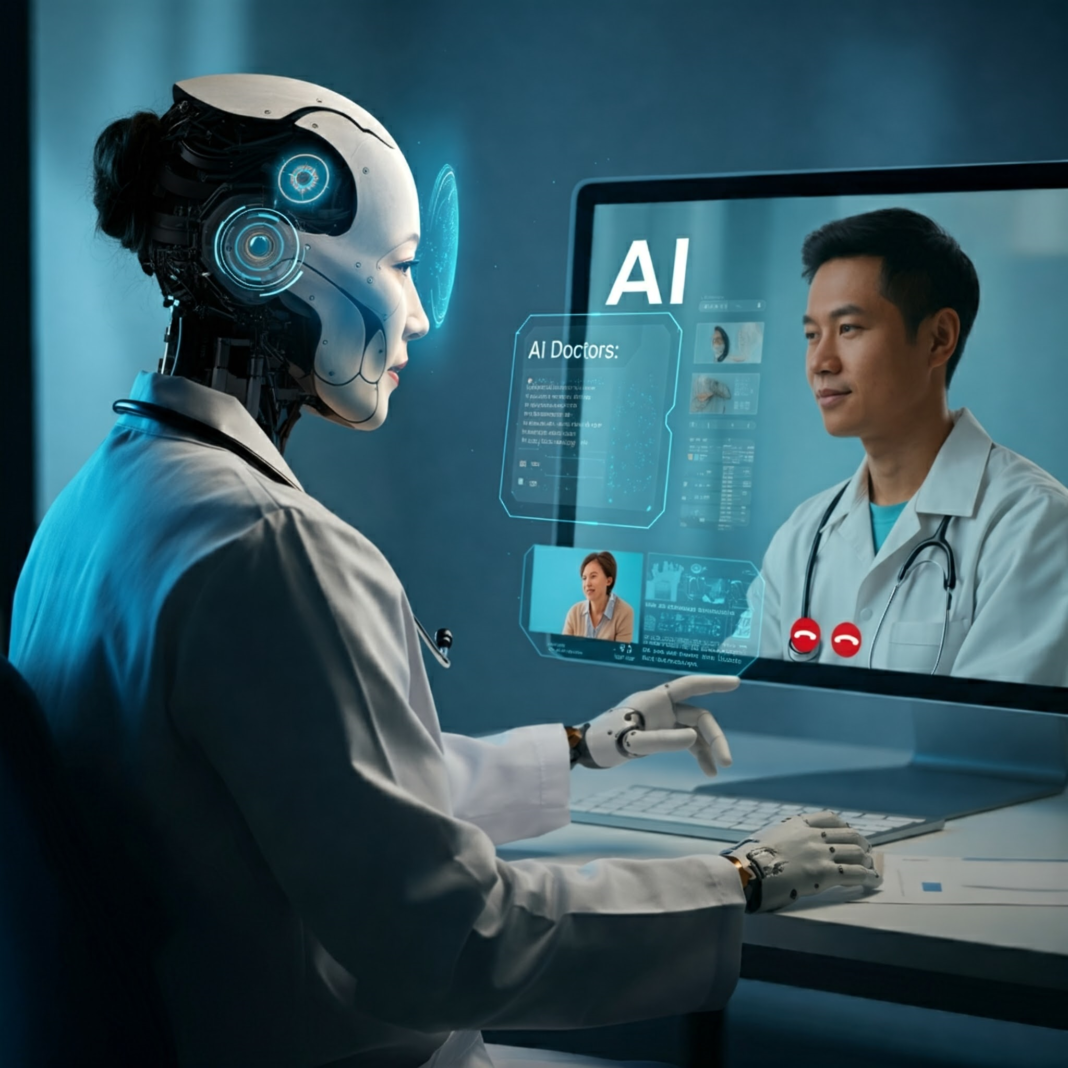AI Doctors: Will Telemedicine Replace Human Physicians?
The rise of telemedicine, fueled by blazing-fast internet speeds and increasingly sophisticated software, has revolutionized healthcare access. Add artificial intelligence (AI) to the mix, and suddenly we’re talking about personalized treatment plans, AI-powered diagnostics, and virtual doctors available 24/7. But does this mean human physicians are about to go the way of the dinosaurs? This article explores the burgeoning intersection of AI and telemedicine, examining its potential to transform healthcare while addressing the crucial question: will AI doctors ultimately replace human physicians? The short answer is: not entirely, but the landscape is definitely changing.
(1) Personalized Medicine Through AI in Telemedicine: The Current State
AI is making waves in telemedicine by enabling personalized medicine, tailoring treatment plans and medication based on individual patient data. Imagine an app analyzing your genetic predisposition to certain diseases, your lifestyle choices, and even real-time biometric data from your smartwatch to recommend preventative measures or adjust medication dosages. This is no longer science fiction; it’s happening now. Companies like PathAI are using AI to improve the accuracy and speed of disease diagnosis, while others like Babylon Health offer AI-powered symptom checkers and virtual consultations.
However, challenges remain. Data privacy and security are paramount concerns, as is the potential for algorithmic bias. Furthermore, integrating AI into existing healthcare systems can be complex and costly. Despite these hurdles, the opportunities are immense. AI-powered telemedicine can improve access to care, particularly in underserved areas, reduce healthcare costs, and enhance the overall patient experience.
(2) Key Insights and Analysis
The convergence of AI and telemedicine is creating a dynamic landscape. Emerging technologies like natural language processing (NLP) are enabling AI-powered chatbots to provide empathetic and personalized patient support, while machine learning algorithms are constantly improving the accuracy of diagnostic tools. This shift is influencing consumer behavior, with patients increasingly expecting convenient, personalized, and tech-driven healthcare solutions.
This trend has implications for businesses operating in the telemedicine space. Companies that can effectively integrate AI into their platforms and demonstrate tangible benefits for both patients and providers will be well-positioned for success. Conversely, those that fail to adapt risk being left behind.
(3) Outlook and Predictions: The Future of AI in Telemedicine
The future of telemedicine is inextricably linked to AI. We can anticipate further advancements in AI-powered diagnostics, personalized treatment plans, and remote patient monitoring. The role of human physicians will likely evolve, focusing more on complex cases, overseeing AI systems, and providing the human touch that technology cannot replicate.
Geopolitical events, economic conditions, and regulatory changes will undoubtedly influence the trajectory of AI in telemedicine. Businesses and professionals in this space must stay abreast of these developments and adapt their strategies accordingly. Embracing a culture of innovation, prioritizing data security, and fostering collaboration between AI systems and human healthcare providers will be crucial for navigating the future landscape.
(4) Conclusion: A Symbiotic Future
AI in telemedicine isn’t about replacing doctors; it’s about empowering them. By automating routine tasks, providing data-driven insights, and expanding access to care, AI can free up physicians to focus on what they do best: providing compassionate, personalized care. The future of healthcare is not about choosing between AI doctors and human physicians, but about creating a symbiotic relationship where both work together to deliver the best possible patient outcomes.
(5) Case Study: Babylon Health
Babylon Health provides a prime example of successful AI integration in telemedicine. Their platform offers AI-powered symptom checking, virtual consultations, and personalized health assessments. Key factors contributing to their success include a user-friendly interface, a focus on data security, and strategic partnerships with healthcare providers. Babylon’s experience demonstrates that AI can enhance, rather than replace, the role of human physicians in delivering quality care.
(6) Interview Excerpts
While specific publicly available interview excerpts directly answering the question of AI replacing doctors in telemedicine are scarce, experts generally agree that AI will augment, not replace, physicians. Many highlight the importance of human interaction and empathy in healthcare, aspects that AI cannot fully replicate.
(7) Thought-Provoking Questions
- How comfortable are you with the idea of an AI diagnosing your medical condition?
- What role do you see human physicians playing in a future dominated by AI-powered telemedicine?
By embracing the potential of AI while acknowledging its limitations, we can create a future where technology and human expertise work together to create a healthier world for all.










